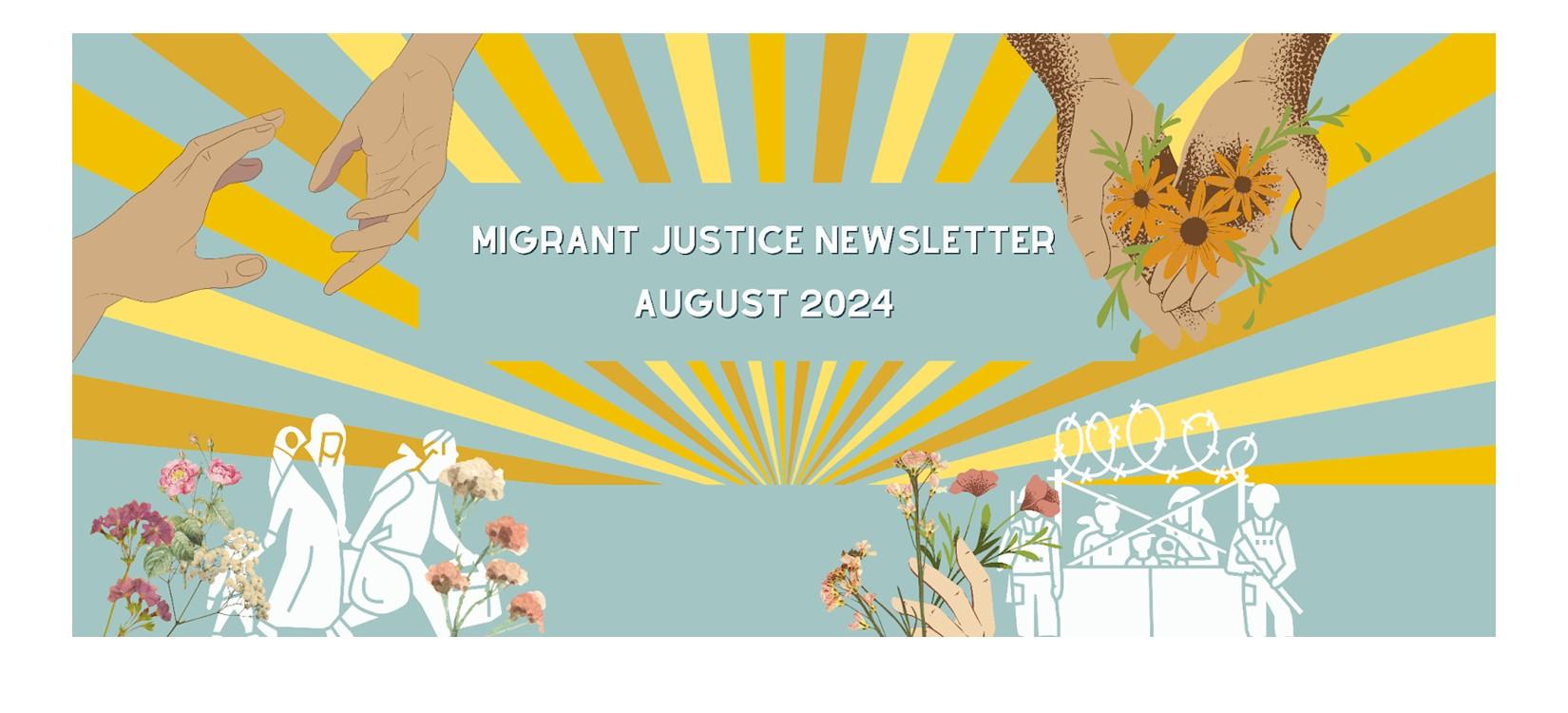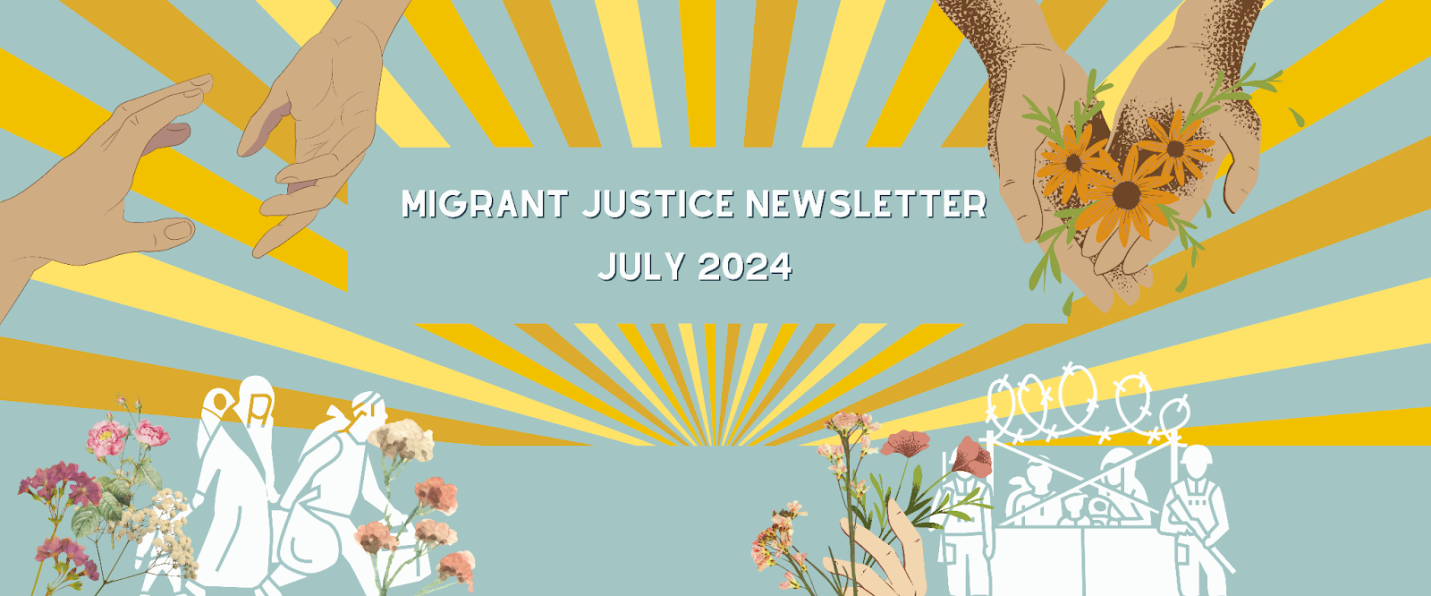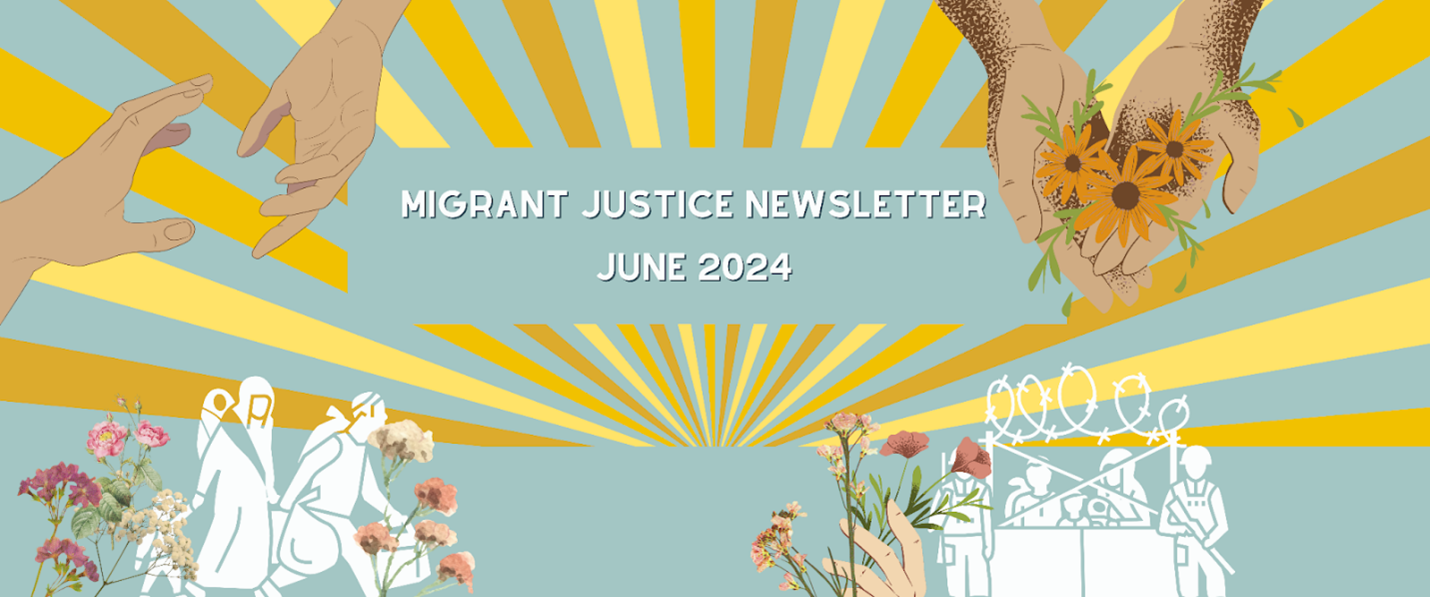The United States has long been a destination of migrants from around the world seeking safety and new opportunities. The image of Ellis Island and the Statue of Liberty welcoming “the poor huddled masses” is ingrained in our collective memory and culture.
Yes, there are many coming to our southern border seeking safety. Many of those come from countries whose people have been negatively impacted by US economic and military policies. They come here because we went there.
While the US was the world’s largest recipient of new asylum applications in 2023 (1.2 million), it is desperately trying to deter migrants from seeking refuge here. On June 4, the Biden-Harris Administration announced new plans to “secure our border.” It bars migrants from even asking for asylum. The unwelcoming attitude that the US presents toward migrants is illustrated not only by Biden’s recent asylum ban and the monthly increase in US migrant detention, now standing at 38,525.
In IRTF’s July 2024 Migrant Justice newsletter, please read about (1) Asylum Processing at the US-Mexico Border, (2) ICE Air: Update on Removal Flight Trends, (3) Migrants in Colombia: Between Government Absence and Criminal Control, (4) At the Border: Recent Incidents at and around the US-Mexico Border, (5) Honduras plans to build a 20,000-capacity ‘megaprison’ for gang members as part of a crackdown, (6) Thousands of displaced residents in southern Mexico fear returning to their homes after violence, (7) Danger in the Darién Gap: Human Rights Abuses and the Need for Humane Pathways to Safety, (8) America Turned Against Migrant Detention Before. We Can Do It Again, (9) Asylum claims are down over 40% in Mexico, and (10) UN Refugee Agency Global Trends Report 2023.
Then take a few minutes to read what you can do to take action this week in solidarity with migrants and their families. (See details at the bottom of this newsletter.)
A) Act Now for welcoming, dignified and just immigration policies
B) Root Causes: Stop Deportation Flights to Haiti
C) Root Causes: Restore Asylum for LGBTQ+ Refugees in Danger
D) Think Globally. Act Locally: Help Migrants and Refugees in Cleveland
Read the full newsletter at https://www.irtfcleveland.org/blog/migrant-justice-newsletter-jul-2024



